static void Main(string[] args)
{
var repo = new StudentRepository();
List<Student> students = new List<Student>();
var myLock = new object();
//version 1-----------------------------------------------
for (int i = 1; i <= 20; i++)
{
var stud = repo.GetStudentById(i);
students.Add(stud);
}
//version 2-----------------------------------------------
var ids = new int[] { 1, 2, 3, 4, 5, 6, 7, 8, 9, 10, 11, 12, 13, 14, 15, 16, 17, 18, 19, 20 };
Parallel.ForEach(ids, id =>
{
var stud = repo.GetStudentById(id);
lock (myLock)
{
students.Add(stud);
}
});
//version 3------------------------------------------------ -
List<Task> tasks = new List<Task>();
for (int i = 1; i <= 20; i++)
{
tasks.Add(Task.Factory.StartNew(() =>
{
var stud = repo.GetStudentById(i);
lock (myLock)
{
students.Add(stud);
}
}));
}
Task.WaitAll(tasks.ToArray());
students.ForEach(s => Console.WriteLine(s.Id + "---" + s.Name));
Console.ReadLine();
}
Output With version 1

Output With version 2

- Is there any difference between version 1 and version 2 (performance wise)?
- While version 2 gives proper results version 3 stores null in student list(i.e. students). What wrong I am doing here?